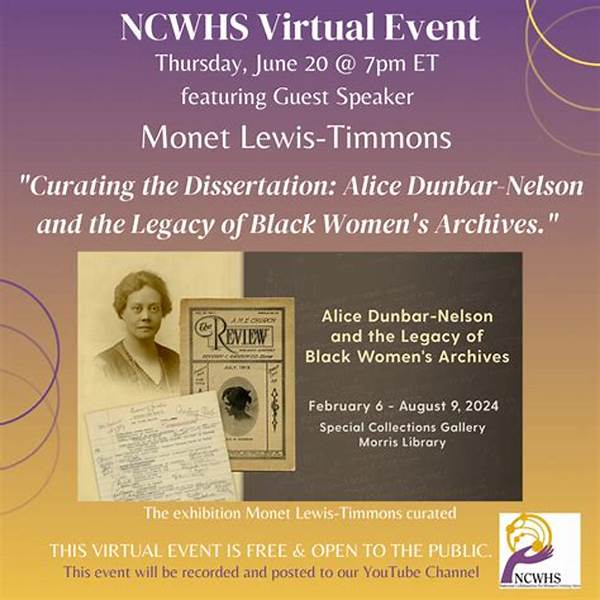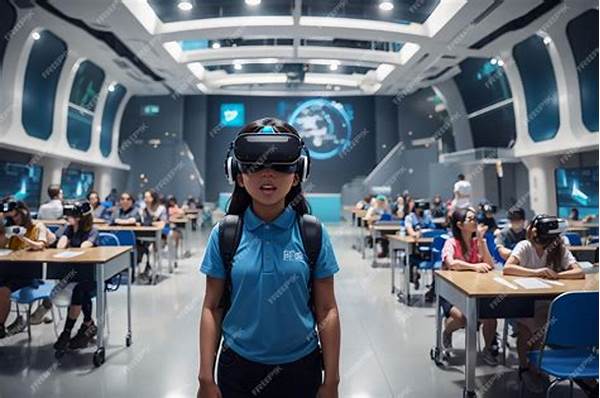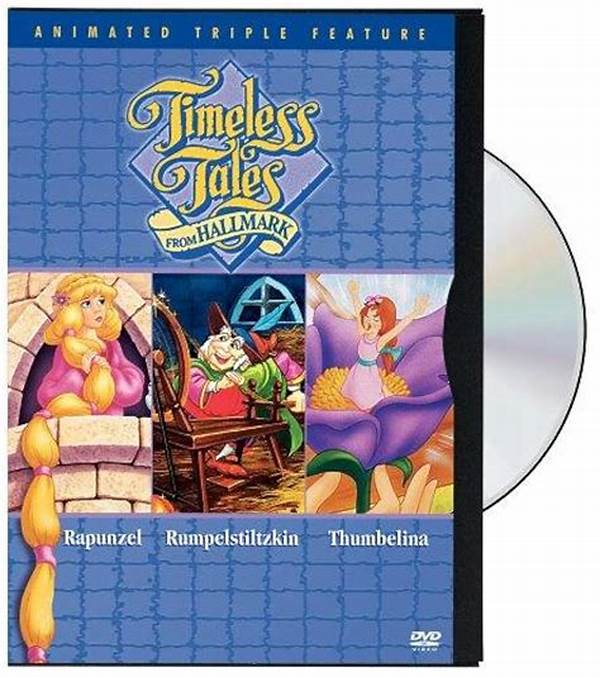In the buzzing world of digital innovation, we find ourselves at the intersection of history and technology, unlocking possibilities never imagined before. Imagine connecting with historians, enthusiasts, and learners globally without leaving your home. Welcome to the enthralling realm of virtual historical collaboration events, where history meets its futurist voyage! These events are not just a novelty; they are a transformative approach to engaging with the past powered by today’s technological marvels. If you haven’t yet tapped into this fresh wave of connectivity and knowledge, it’s time to jump aboard.
Read Now : Vintage Holiday Toon Classics
Why Virtual Historical Collaboration Events Matter
Dude, if you’re thinking these virtual gigs are just another online meeting, think again! These virtual historical collaboration events are flipping the script on how we experience history. Here’s the dish: they’re democratising history access. Whether you’re chillin’ in your PJs or working the 9 to 5 grind, these events bring history to your fingertips. No longer are exclusive, in-person historic conferences the only way to go deep. You get to connect, interact, and learn about pivotal events, historical figures, and cultural milestones like never before—all while munching on your fav snacks at home. Wondering how to make this fun? Many events incorporate immersive tech like VR tours and 3D recreations of historic sites. Trust me, your history class never looked this good.
And if you’re someone who can’t get enough of creative collaboration, virtual historical collaboration events are your new best friend. They break down geographical and social barriers, promoting a never-before-seen exchange of ideas with creators, historians, and fans of history. It’s not just an event; it’s a cultural jam session with people who speak your language—history. You know you need to level up, and this is a killer opportunity to do just that!
The Elements that Amplify Virtual Historical Collaboration Events
1. Accessibility and Inclusivity: Virtual historical collaboration events make history accessible to all, regardless of location or resources.
2. Cutting-Edge Technology: Leveraging VR and AR, these events offer mesmerizing experiences that bring historical eras to life.
3. Global Networking: These events invite diverse voices, allowing a rich exchange of ideas that bring fresh perspectives to age-old narratives.
4. Cost Efficiency: Save big with virtual experiences; no travel costs or pricey admissions, yet you get the whole shebang of insights.
5. Interactive Learning: Real-time polls, Q&A, and Forums make passive learning a thing of the past. Dive in and truly engage with history.
Unleashing the Potential of Virtual Historical Collaborations
Okay, let’s talk serious potential, folks. Virtual historical collaboration events are reshaping how we engage with history, fostering an environment where ideas flow freely and curiosity reigns supreme. Imagine ‘attending’ a reenactment of a historic event or debating the repercussions of a critical historical decision with experts—all from your laptop. That’s the power at play here.
Read Now : Collaborative Learning Strategies In History
Gone are the days when accessing rich historical discussions was a challenge. Now, anyone with a passion for the past can jump right into the conversation, exchange ideas, and learn from the very best. Virtual historical collaboration events create a democratic space for seasoned historians and enthusiastic amateurs alike. By transcending geographical barriers, these events have looped in a worldwide audience, spreading cultural and historical awareness like wildfire.
10 Key Benefits of Virtual Historical Collaboration Events
Enhancing Educational Experiences
Virtual historical collaboration events are turning traditional educational models on their heads. Imagine classrooms beyond walls, where you don VR headsets for an immersive expedition through history. These events are an educator’s dream, offering innovative ways to spark interest. They provide compelling tools to translate complex historical events into engaging stories that students can truly connect with. Digital simulations, interactive panels, and virtual exhibitions are creating an engaging blend of education and excitement.
Furthermore, these events also contribute to skills development beyond just historical knowledge. Communication, critical thinking, and collaboration—are skills vital in today’s interconnected world—learned through these platforms. As a result, learners are not only gaining insights into history but are also being prepared for future challenges.
Looking Ahead
While virtual historical collaboration events are gaining momentum, the future looks even brighter. As technology advances, the capabilities of these events will only broaden, offering more immersive and interactive experiences. Expect AI to personalize learning journeys and AR to transform how we explore ancient civilizations. We stand at the frontier of a new historical exploration era that’s more inclusive, engaging, and innovative than ever. Now’s the moment to fuel your passion for history and become part of this revolution, one that promises to keep history always at our fingertips.
Conclusion: Embrace the Change
In a world that’s racing toward digitalization, virtual historical collaboration events are a beacon of historical storytelling and connection. They are not merely adjusting to a trend—they are reinventing how history is preserved and appreciated. This is your chance to dive deep into the annals of time, connected with a global community that shares your thirst for knowledge. So what are you waiting for? Embrace this evolution and trust us; the past has never been this exciting!



